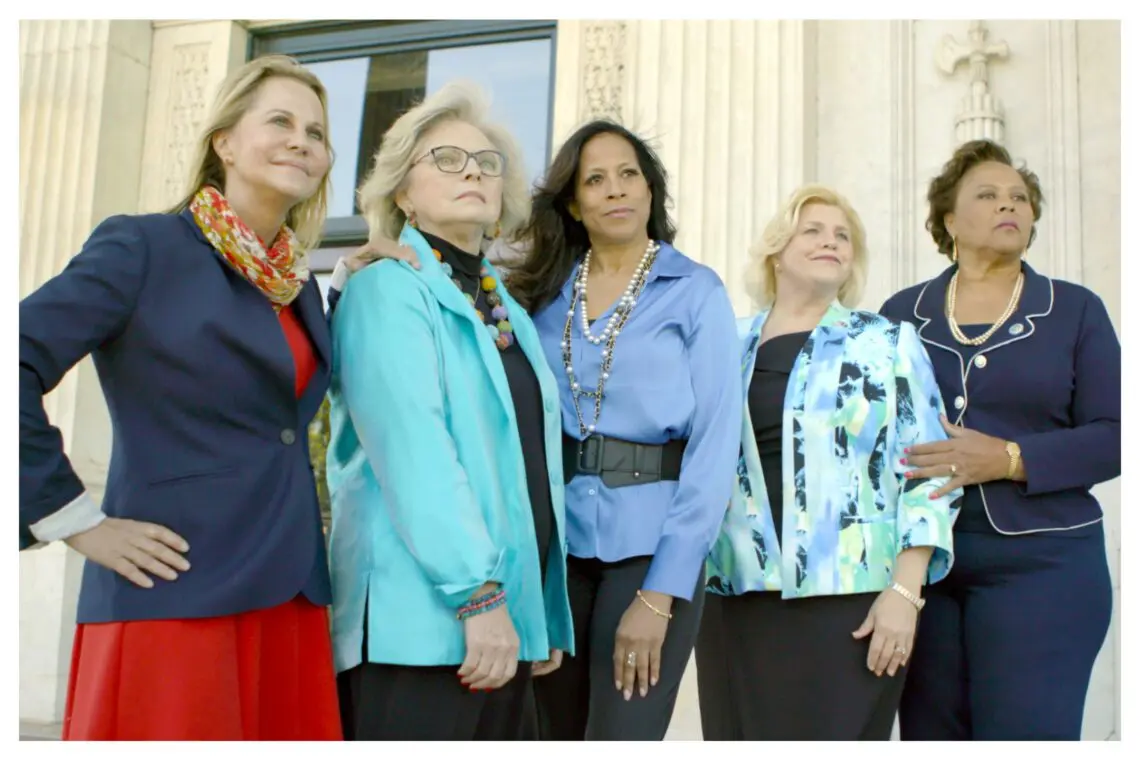Highlighting unity: South Carolina’s “Sister Senators” transform political divisions
A new perspective on political cooperation
As the November elections loom, Director Emily Harrold shifts her focus away from the prevailing U.S. political divide. Instead, she turns the spotlight on an inspiring group of politicians who choose cooperation over conflict: South Carolina’s “Sister Senators.”
The rise of the sister senators
Margie Bright Matthews, Katrina Shealy, Mia McLeod, Penry Gustafson, and Sandy Senn began their collaboration in the wake of the Supreme Court’s Dobbs decision, which terminated the constitutional right to abortion. This moment of realization highlighted the dire need for unity among the few women in South Carolina’s male-dominated senate. Harrold humbly admits, “I’m from South Carolina and didn’t realize there were only five women in the state senate. It’s just so rare to see people of different political persuasions that like and respect each other. It’s a real sisterhood.”
Behind the documentary
“Sister Senators,” a documentary featured at the Ji.hlava Documentary Film Festival’s U.S. Docs showcase, is produced by Harrold and Robin Hessman, with Rachel Denny as a co-producer. A product of Lynnwood Pictures and Global Neighborhood, the film is executively produced by Ruth Ann Harnisch and co-executively produced by Ann Lovell.
Katrina Shealy, dubbed the matriarch of the Sister Senators, was the only woman in the state senate for many years. Hessman points out, “There are really two themes here: the importance of working together across different political parties and the need for representation in politics. Electing more women is crucial.”
The state of political stalemate
One of the documentary’s central ideas is how politicians, in their quest to score points against the opposition, often stagnate progress. Harrold keenly observes, “Governments need to work for us and not just fight. With polarization, we’re witnessing a gridlock where nothing gets accomplished. Whether the next President can get anything done later in Congress remains questionable.”
Legislative efforts and challenges
Despite their occasional disagreements, the Sister Senators manage to discuss various issues constructively. Their collaboration extends beyond reproductive rights to include advocacy for an anti-hate crimes bill—a pressing issue since South Carolina currently lacks one. Harrold underscores, “They are doing things across many different issues,” while Hessman adds, “They are listening to the people they represent and each other. Their unity means they get things done, despite the usual political egos often getting in the way.”
A peek into the future
Harrold plans to wrap up filming in early 2025, anticipating a shift in the political landscape. The film captures pivotal moments, such as Margie Bright Matthews and Emily attending the DNC where Kamala Harris delivered her acceptance speech, indicating significant changes ahead.
Reflecting on political dynamics
Having previously captured the lives of politicians in “While I Breathe, I Hope” and “In the Bubble with Jaime,” Harrold approached the Sister Senators through another elected official who suggested, “We are all in or we are not going to do it.” Harrold maintains a policy of honesty, ensuring an intimate and comprehensive look into who these senators are and what matters to them.
Struggles and resilience in leadership
Harrold notes the visible sexism within the political arena: “Growing up in the 90s, women had a lot of rights, but the last five years have seen a reversal. Sexism is overt now.” She describes scenarios such as male senators walking out when women speak on pertinent issues and rigid dress codes impacting even those going through menopause.
Hessman highlights another stark reality: “Older men control the environment to their comfort, often at women’s expense.” Women in politics face many hurdles, underscoring the need for more female representation and solidarity in leadership roles.
The enduring need for representation
The struggles faced by the Sister Senators resonate with women across generations. “I grew up thinking many battles had been won,” says Hessman, “but clearly, they’re not.” This enduring need for women at the decision-making table and the obstacles they face remain universal issues.
Connect and share: If this story resonates with you, share it on social media or follow us for more updates on inspiring political narratives and the ongoing struggle for equality and representation in leadership.

 Italian
Italian







